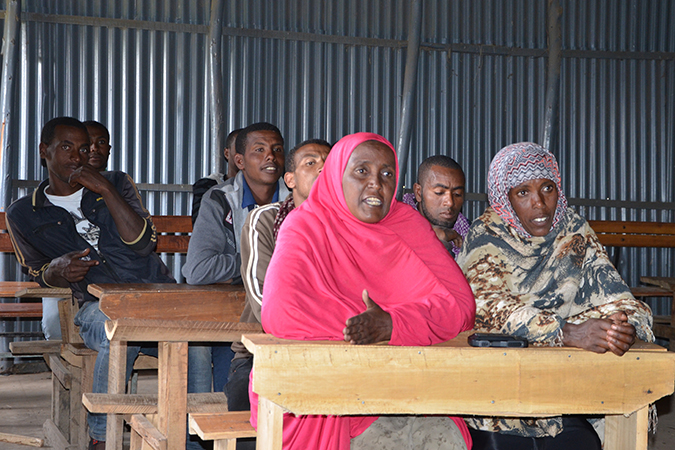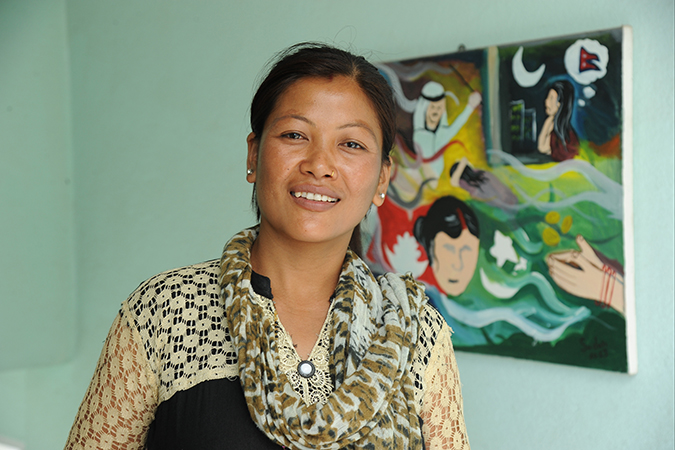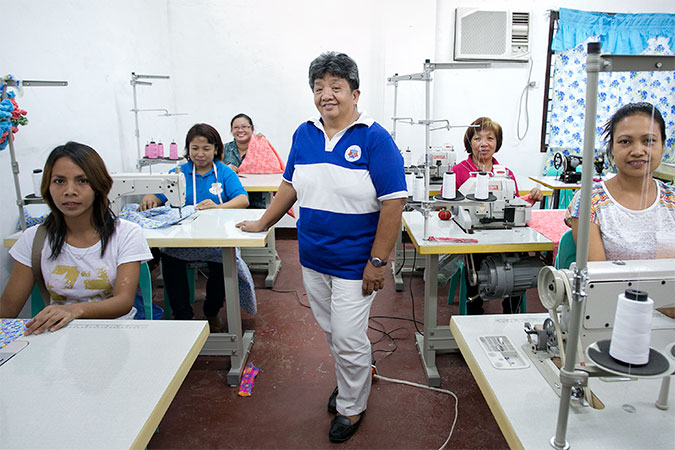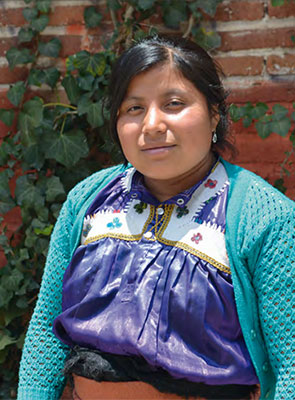Migrant women — stories you should know and tell
Date:
People have been on the move since the beginning of civilization. The world as we know evolved as the first of our species migrated out of Africa.
Today, people are on the move for many different reasons — to escape poverty, conflict and devastation within their own countries, to expand their education, livelihoods and opportunities, and to join their loved ones. Between 2000 and 2015, the number of international migrants increased by 41 per cent to reach 244 million; and almost half of them were women.
The migrant women around us have diverse faces, dreams and realities, and help sustain our economies, homes and communities. Every sixth domestic worker in the world is an international migrant,with women making up 73.4 per cent of international migrant domestic workers.
The remittances sent by women migrant workers improve the livelihood and health of their families and strengthen economies. In 2015, international migrants sent $432.6 billion in remittances to developing countries — nearly three times the amount of development aid (ODA), which totaled at $131.6 billion.
On the occasion of International Migrants Day (18 December), here are some migrant women who may not have made the headlines, but they are rising up for their rights and placing migrant women at the forefront of solutions.
Promoting workers rights in the Philippines
Edna Valdez migrated to Hong Kong as a domestic worker in 1996. She was unable to take time off and worked longer hours than her contract stipulated. When she complained, she was told that she would only receive benefits after two years. Into her third year of contract, finally able to receive benefits, she was fired.
“The main challenge for women migrant workers is that they don’t know what rights they have. Even when there are laws and services in place, they don’t know how to claim their rights or access support,” says Edna.
Shortly after being let go, Edna returned home to La Union province in Philippines and joined Bannuan Ti La Union (Heroes of La Union), where she started working for migrant women’s rights. Today, she is part of a UN Women programme, funded by the European Union. Read more»
Speaking up in Ethiopia

Lack of economic resources and opportunities are driving Ethiopia’s young women to migrate, often through illegal brokers, as domestic workers in the Gulf countries.
Meliya Gumi, a widowed mother of eight, lives in the village of Haro Kunta in Ethiopia. As she faced difficulty making ends meet, her two daughters, 16 and 18, migrated to Dubai and Qatar respectively, and found themselves trapped in poor working conditions with no benefits or protection.
“My wish is to see my daughters come back home safe and I would never want them to leave again, as long as they have some income to survive on.”
Meliya is now one of 22 active participants in “Community Conversations” in her village, aiming to prevent exploitative and illegal migration, including smuggling and trafficking of workers. As Meliya shares the experiences of her daughters as a cautionary tale for others, she stresses, “If enough resources, including land and employment, is provided to the younger ones, there will be no need for them to migrate.”
As a result of the discussions and with the support from the government, some parents have started investing in their children’s education and income generating activities. Read more»
Organizing for support in Mexico
On the Mexican border, countless female migrant workers live in precarious conditions, working in the informal economy. According to data from the 2010 census, 8 out of every 10 people live in poverty in the State of Chiapas, 55 per cent of those born in other countries are women, mostly from Central America.
Teofila Diaz Jiminez, 20, was born in the community of Dos Lagunas, San Cristobal, and left home at a very young age in search of ways to make a living.
“I cried a lot because of what people did to me,” said Jiminez. “They locked me up, forced me to work without any pay. Although I didn’t go to the United States like many others, migration is difficult here in Mexico too.”
Eventually Jiminez discovered Voces Mesoamericanas, a UN Women partner working on migrant women’s rights, and began attending training workshops to strengthen her involvement in the community. The trainings helped Jiminez find her own voice, understand her rights and share her knowledge with other indigenous migrant women.
“Now I’m not afraid of taking part, I have more self-esteem.” Read more»
Learning new skills in Nepal

The latest numbers from Nepal suggests that 21,421 Nepali women are legally working overseas, mostly in the United Arab Emirates, Saudi Arabia and Kuwait.
Dawa Dolma Tamang, 32, left her remote Maheshwari village in Eastern Nepal to work in Abu Dhabi, only to find herself declared medically unfit for work upon arrival.She returned to Nepal, penniless.
“I migrated because I wanted to earn an income and change my life,” she said, as she described migration as the only way to escape poverty, having two children to support and an alcoholic husband.
A recruiting agent offered Dolma a job as a cleaner in Abu Dhabi with promise of a salary she couldn’t imagine in Nepal. The agent in Nepal charged her seven times more than what was required to process her papers, and soon after arriving in Abu Dhabi, Dolma was taken to a one-room apartment shared with either other women. On the third day, a doctor visited as part of the recruitment process. Dolma tested positive for tuberculosis, and declared medically unfit to work.
Now, Dolma works as a mason and is saving to pay back her migration loans. Soon she will be enrolled in vocational and entrepreneurship skills training as part of UN Women’s Advancing Women’s Economic Empowerment programme in Nepal, funded by the government of Finland. Read more»

